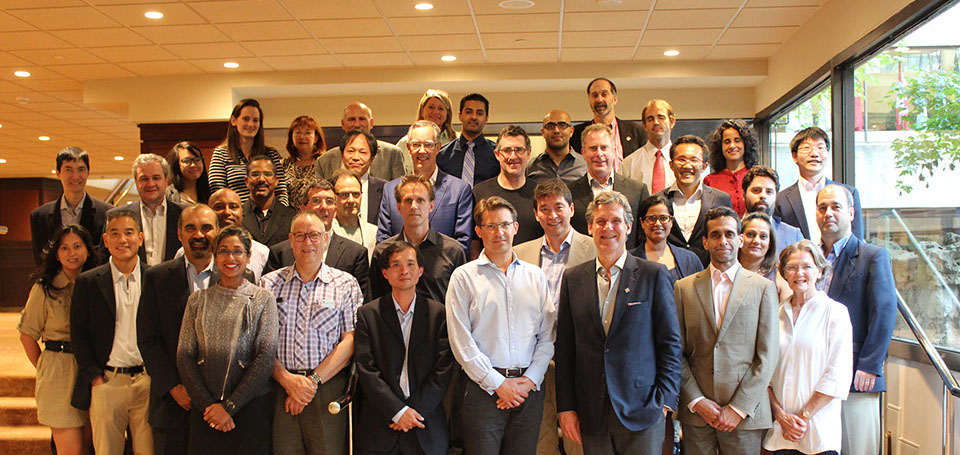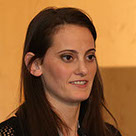
Clinical Practice Guidelines from the AOSpine Knowledge Forum Spinal Cord Injury

Following on from our last FacultyFocus edition where we shared with you the latest from the AOSpine Knowledge Forum Deformity, this edition we draw your attention to the most up to date publications and podcasts from our Knowledge Forum Spinal Cord Injury.
Due to substantial knowledge gaps and controversies regarding the optimal treatment of traumatic spinal cord injury (tSCI) and chronic compressive pathologies such as degenerative cervical myelopathy (DCM), AOSpine International and AOSpine North America, in collaboration with the Cervical Spine Research Society and the American Association/Congress of Neurologic Surgeons, have developed clinical practice guidelines for how to best manage patients with tSCI and DCM.
Using the Grading of Recommendations, Assessment, Development, and Evaluation (GRADE) methodology, the available evidence related to the management of tSCI and DCM was critically appraised and balanced with the consensus opinions from a multidisciplinary team to develop evidence-based recommendations.
Guidelines for the management of traumatic spinal cord injury
The management of patients with tSCI has drastically evolved over the past century as a result of increasing knowledge on injury mechanisms, disease pathophysiology, and the role of surgery.
These guidelines aim to outline how to best manage patients with tSCI, promote standardization of care, and encourage clinicians to make evidence-informed decisions.
Guidelines for the management of degenerative cervical myelopathy
By summarizing the current evidence, these guidelines not only ensure appropriate management of elderly myelopathic patients but also define treatment strategies for patients whose professional duties and other activities of daily living might be significantly impaired.
The main areas of focus of these guidelines include defining the natural history of DCM; outlining the management of mild, moderate, and severe myelopathic patients; quantifying the expected outcomes of surgical and nonsurgical treatment for these populations; and discussing the management of nonmyelopathic patients with image evidence of cord compression or canal stenosis.
 Michael Fehlings, Chair of the AOSpine Knowledge Forum and the leader of both guideline projects, speaks of the impact these guidelines will have in clinical practices:
Michael Fehlings, Chair of the AOSpine Knowledge Forum and the leader of both guideline projects, speaks of the impact these guidelines will have in clinical practices:
“Both traumatic and nontraumatic spinal cord injury result in devastating functional impairments and reduced quality of life. The last 10 years have witnessed significant improvements in the management of these conditions due to improved knowledge surrounding injury mechanisms, disease pathophysiology, and the impact of surgery. These guidelines distill, for the first time, existing evidence on these topics and aim to develop recommendations to outline how to manage patients with degenerative cervical myelopathy and traumatic spinal cord injury. We hope these guidelines will promote shared decision making among physicians, patients and their families, standardize care worldwide, and encourage future research to address existing knowledge gaps.”
 Lindsay Tetreault (PhD), a postdoctoral fellow from the Toronto Western Hospital and a medical student at the University College Cork, discusses the merits of developing clinical practice guidelines for SCI and DCM.
Lindsay Tetreault (PhD), a postdoctoral fellow from the Toronto Western Hospital and a medical student at the University College Cork, discusses the merits of developing clinical practice guidelines for SCI and DCM.
“There was a pressing need to develop clinical practice guidelines to outline how to best manage patients with varying severities of myelopathy and to resolve existing areas of controversy in the treatment of traumatic spinal cord injury. These guidelines represent the judgement of a team of experienced clinicians and methodologists, and also consider the perspectives of patient advocates. We hope that our recommendations will encourage evidence-based medicine, reduce health care variations, and improve overall quality of care.”
Access the Guidelines here ![]()
Listen to the Global Spine Journal Podcasts here ![]()
Learn more about the Knowledge Forum Spinal Cord Injury here ![]()
FacultyFocus 3-2018
AOSpine
FacultyFocus
3-2018